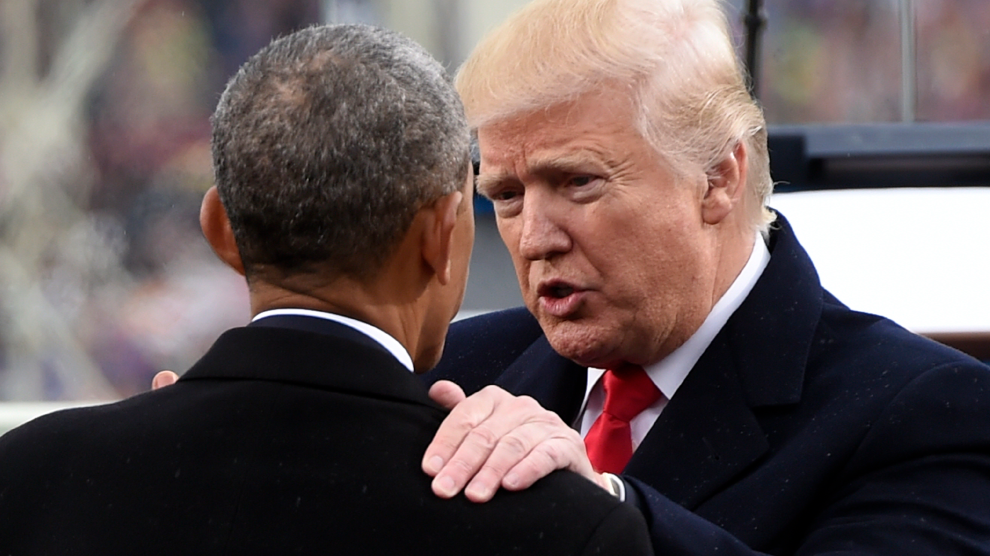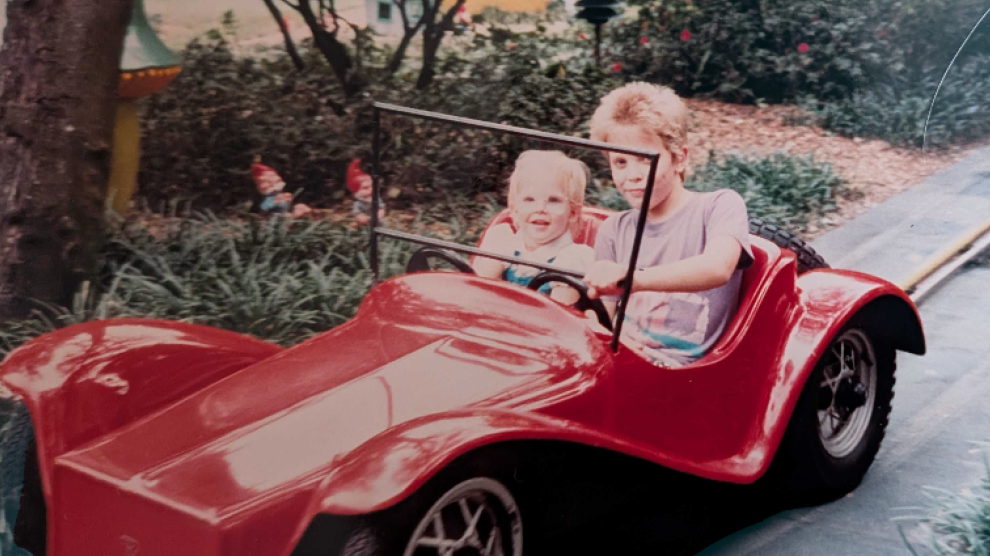
Michael Tucker, director of the film The Prisoner or: How I Planned to Kill Tony Blair—opening tomorrow in New York and Washington, D.C., and in Chicago, Austin and San Francisco next week—has a dark, surrealistic sensibility. That’s the only explanation for his decision to employ a Peter Gunn-like soundtrack, comic book-style stills, and slow-motion home videos in his documentary portrait of an Iraqi man falsely accused of terrorist activity and detained at Abu Ghraib. The Prisoner is an odd and even imperfect film, but one that ultimately rewards its viewer with an emotional account of the smaller tragedies and humanities of the war in Iraq.
Yunis Khatayer Abbas, the eponymous prisoner and an Iraqi journalist, was arrested with his 3 brothers at their home shortly after midnight on September 23, 2003, on charges of building bombs to assassinate the British Prime Minister during a visit to Iraq. After being held for several weeks at the Baghdad police department and airport, where he was beaten during interrogations, Yunis was transferred to Abu Ghraib. There, he was promptly categorized as a prisoner with no security value, despite the ambitious plan attributed to him. Even so, he would remain at Abu Ghraib for almost 9 months, living in marginal conditions in a tent city known as Camp Ganci, located outside the prison’s walls but inside its razor-wire fence.
Yunis makes an interesting protagonist because he defies ideological categorization. Despite the hardship he has undergone at American hands by the time the film is shot after his release, he remains ambivalent about the American invasion. He refers to himself only as Muslim, never Sunni or Shiite. The only allegiance Yunis declares is to journalism—and the film recounts the events of the war by way of its protagonist’s disturbingly beautiful photographs of firebombs, gutted buildings, flying shrapnel, and looting.
But, partly because Yunis is hard to read and partly because the film dallies too long in its imagistic account of the first phase of the war, the film gets off to a slow start. It features long cuts of loosely structured interviews with Yunis, whose English is quite limited. As in his first film, Gunner Palace, Tucker works in the genre of cinema verité, and the lack of structure puts the viewer on edge. Add the comic-book images —Bang! Pow!—of American soldiers, the retro-hardboiled music, and the home videos, however, and “on edge” nearly becomes a precipice one could fall off.
But then Specialist Benjamin Thompson enters the film. He is exactly what it has been missing. Thompson was a guard at Camp Ganci for the second half of the time Yunis and his brothers served. Yunis remembers Thompson as the most compassionate guard, and Thompson remembers Yunis as one of just a few detainees who spoke English. Thompson, a 20-something tough-looking, gentle-acting former real estate agent with a slight speech impediment, balances Yunis’s complexity. His more detached—though still clearly troubled—view of what happened in the less infamous part of Abu Ghraib gives the viewer a foothold in reality. No claims of torture have emerged from the tent city, but the movie excerpts military reports that document the detainees’ limited access to medical attention, inadequate and spoiled food, and dangerous exposure to RPGs launched by insurgents just outside the fence. More than once, tent city detainees rioted, and a few were fatally punished by the guards.
With Thompson’s appearance, Tucker also introduces snippets of military policy manuals and reports regarding how the 4,000 low-security detainees were treated in the tent camps. In one set of documents, an illustrated manual describes procedures for checking prisoners in and out, using robed Arabs that strangely resemble frowny-faced cartoon ghosts to represent the detainees. The comics now make some sense: The military’s view of the prisoners is disturbingly light-hearted, even as it acknowledges the surreal unhappiness that Yunis describes when he says, “I remember [those months] like a dream. I can’t believe that happened.”
The Prisoner reveals that the military suffered from several forms of denial about the conditions at Abu Ghraib. In one memo, General Wojdakowski, Lt. General Ricardo Sanchez’s top deputy in Iraq, is quoted saying, “I don’t care if we’re holding 15,000 innocent civilians; we’re winning the war!” The words of the commander of the unit that “captured” Yunis and his brothers (who were sleeping at the time) reek of denial: “Our intelligence system is incredible at this time, and our rate as we catch these folks is almost closing in on 100 percent.” Specialist Thompson seems to have comprehended the chasm between the two perspectives when he innocently summarizes, “The detention operations at the prison were not a priority for the people who make decisions; it just felt like Abu Ghraib was cut off from the rest of the operational environment and that what went on there was very secretive.”
While brass closed its eyes, the detainees were forced to eat food contaminated with rat feces and die of unattended illnesses. When riot ensued, Yunis wrote on his underwear who died, who was sent to the hard site, and who had to be medivaced out. One day, RPGs killed a handful of Camp Ganci prisoners, and more riots ensued. Thompson, too, mentally recorded the injustices there in a rich visual memory: “After the riots had stopped and we were trying to return the camp to normalcy, I remember standing at the gate and talking to [Yunis’s brother] Khalid, and just looking at him; he was crying, and I was crying, and it was very strange to have that gate—he was inside the camp and I was outside the camp—and just to have this metal object separating you and implying something.”
That implication was false, and Yunis and his brothers were finally called before an officer, who apologized and then sent them home in a taxi. “Sorry?” Yunis says, “I don’t need his ‘sorry.’…I’m not terrorist. I’m civilian people, and I’m journalist, and I have a heart, you see—I am a man.” The Army claims to have no record of him.

















